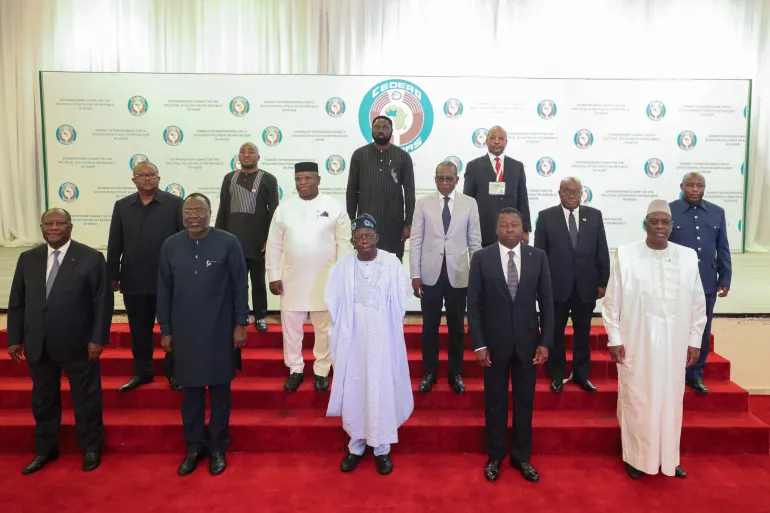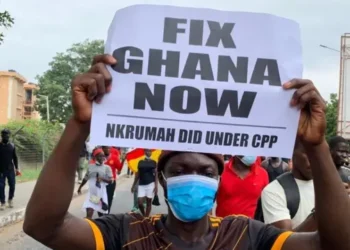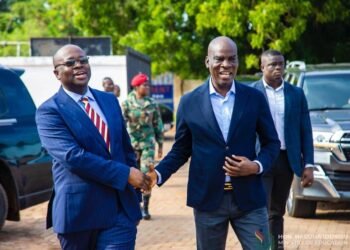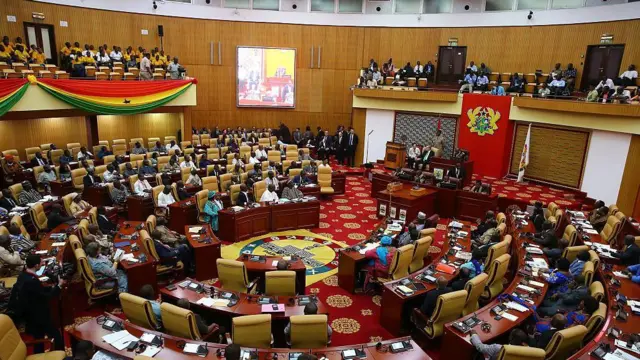Seems like ECOWAS learned the hard way: when Western-style sanctions blow up in your face you have no choice but to return to the negotiation table.
The Economic Community of West African States (ECOWAS) was established with the noble aim of fostering economic integration and development while ensuring peace and security in the West African region.
However, recent events have highlighted glaring deficiencies in ECOWAS’s ability to tackle two of the most pressing issues facing its member countries: terrorism and poverty.
ECOWAS’s feeble response to these challenges, particularly in the Sahel region, raises serious questions about its effectiveness and commitment to its mandate.
One of the most damning criticisms of ECOWAS’s approach to combating terrorism is its apparent indifference to the plight of member countries facing security threats.
While countries like Mali, Burkina Faso, Niger, and Guinea were grappling with terrorist insurgencies in the Sahel region, ECOWAS stood by, watching passively instead of providing the necessary support and assistance.
The consequences of this inaction were dire, as evidenced by the escalating violence and instability in these countries.
Moreover, when the people of these countries, exhausted by the relentless onslaught of terrorism, took decisive action to address the security challenges, ECOWAS’s response was deeply problematic.
Instead of offering constructive solutions or mediating between the governments and dissenting factions, ECOWAS simply condemned the actions as “coups” and rushed to impose sanctions.
This knee-jerk reaction, reminiscent of Western interventionist approaches, only served to exacerbate tensions and further destabilize the region.
The cases of Mali, Burkina Faso, Niger, and Guinea underscore ECOWAS’s inconsistent and shortsighted handling of political crises. In Mali, ECOWAS’s initial condemnation of the military intervention led to punitive sanctions that had severe repercussions for the civilian population.
Similarly, in Burkina Faso, ECOWAS’s response to the military takeover failed to address the underlying grievances and instead punished the entire population with sanctions.
Perhaps, the most egregious example of ECOWAS’s flawed approach is its recent volte-face regarding Niger. If sanctions did not work in Mali or Burkina Faso, why did it think it would work in Niger?
The biggest diplomatic blunder of ECOWAS was to advocate for military intervention in Niger to restore President Mohamed Bazoum after he was ousted.
If ECOWAS possessed the capability to organize military intervention in Niger, why did it not deploy these resources earlier to help Niger fight terrorism – the primary reason for the military takeover?
In defiance of ECOWAS, the junta-led governments declared that an “attack on Niger was an attack on them.”
It was then that ECOWAS realized they had underestimated the strength of the junta alliance and began to tone down on the military intervention they trumpeted earlier.
However, it was too late.
They distanced themselves from the bloc, strengthened ties with Russia, and formed a mutual defense pact known as The Alliance of Sahel States.
Their priority also shifted from elections to restoring security—a daunting task given the jihadist insurgencies linked to al Qaeda and the Islamic State.
Fast forward on January 28, 2024, ECOWAS was caught off guard when Mali, Burkina Faso, and Niger jointly declared their intention to withdraw from ECOWAS.
Their reasoning? A “sovereign decision” driven by what they perceive as a departure from the ideals of the bloc’s founding fathers and the spirit of Pan-Africanism.
Also, rather than fostering unity and cooperation, the bloc has become a threat to its own member states and their people.
ECOWAS’ U-Turn
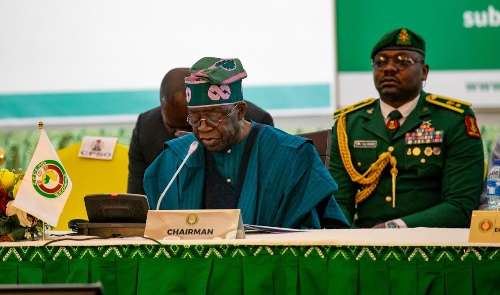
In an attempt to save face and salvage the situation, ECOWAS in an emergency heads of state summit in Abuja, Nigeria, lifted the sanctions on Niger on February 24, 2024.
Nigeria’s President and Chair of ECOWAS, Bola Ahmed Tinubu, emphasized the bloc’s commitment to the people of Niger.
“We are for the people of Niger, and we will continue to support the people of Niger. I want to give you a message to the leadership of Niger to clearly show us some goodwill, and I can assure you that this sanction will be lifted.”
Bola Ahmed Tinubu
These sanctions were initially imposed after last year’s military coup in Niger, which led to the suspension of trade and the implementation of tough measures, including a no-fly zone, border closures, and asset freezes.
ECOWAS also asked its withdrawing member states to reconsider their decision given the benefits enjoyed by their citizens. Whether they will heed and backtrack on their stance is a story for another day.
ECOWAS stands at a critical crossroads, compelled to reassess its approach and realign its actions with its founding principles.
Consistent standards must be applied in responding to coups, devoid of geopolitical considerations. Dialogue with coup leaders should be pursued to facilitate transitions to civilian rule while addressing security concerns.
Moreover, empowering local communities through education, job creation, and social services is imperative in combating terrorism and poverty effectively.
In conclusion, ECOWAS’s failure to address terrorism and political instability within its member states undermines its credibility and threatens regional peace and security.
It must heed the lessons from recent events and undertake bold reforms to fulfill its mandate of fostering cooperation and prosperity in West Africa.
Anything short of decisive action risks further eroding public trust and exacerbating the myriad challenges facing the region.
READ ALSO: You Can’t Shoot Your Way Through An Ideological War


